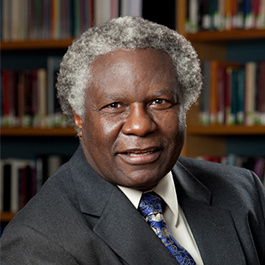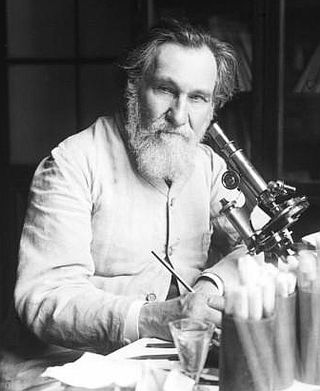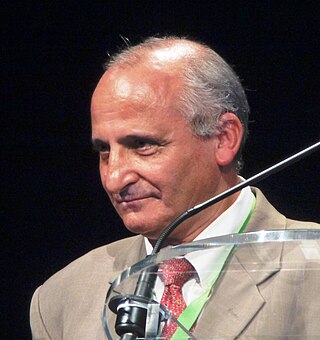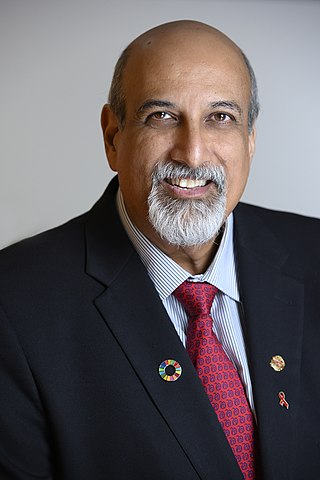
Science policy is concerned with the allocation of resources for the conduct of science towards the goal of best serving the public interest. Topics include the funding of science, the careers of scientists, and the translation of scientific discoveries into technological innovation to promote commercial product development, competitiveness, economic growth and economic development. Science policy focuses on knowledge production and role of knowledge networks, collaborations, and the complex distributions of expertise, equipment, and know-how. Understanding the processes and organizational context of generating novel and innovative science and engineering ideas is a core concern of science policy. Science policy topics include weapons development, health care and environmental monitoring.

The Millennium Technology Prize is one of the world's largest technology prizes. It is awarded once every two years by Technology Academy Finland, an independent foundation established by Finnish industries, academic institutions, and the state of Finland. The patron of the prize is the President of Finland. The Millennium Technology Prize is Finland's tribute to innovations for a better life. The aims of the prize are to promote technological research and Finland as a high-tech Nordic welfare state. The prize was inaugurated in 2004.

Calestous Juma was a Kenyan scientist and academic, specializing in sustainable development. He was named one of the most influential 100 Africans in 2012, 2013 and 2014 by the New African magazine. He was Professor of the Practice of International Development and Faculty Chair of the Innovation for Economic Development Executive Program at Harvard Kennedy School. Juma was Director of the School's Science, Technology and Globalization Project at Harvard Kennedy School as well as the Agricultural Innovation in Africa Project funded by the Bill and Melinda Gates Foundation. His last book, Innovation and Its Enemies: Why People Resist New Technologies, was published by Oxford University Press in 2016.

Ashok Gadgil Is the Andrew and Virginia Rudd Family Foundation Distinguished Chair and Professor of Safe Water and Sanitation at the University of California, Berkeley. He is a Faculty Senior Scientist and has served as director of the Energy and Environmental Technologies Division at Lawrence Berkeley National Laboratory.
The National Academy of Engineering (NAE) is an American nonprofit, non-governmental organization. The National Academy of Engineering is part of the National Academies of Sciences, Engineering, and Medicine, along with the National Academy of Sciences (NAS), the National Academy of Medicine, and the National Research Council.

Martin Andrew Green is an Australian engineer and professor at the University of New South Wales who works on solar energy. He was awarded the 2021 Japan Prize for his achievements in the "Development of High-Efficiency Silicon Photovoltaic Devices". He is editor-in-chief of the academic journal Progress in Photovoltaics.
Dr. Võ Tòng Xuân is former Provost of Tân Tạo University (TTU), the former rector of An Giang University (AGU) and the former vice rector of Can Tho University. He was also a member of the Board of Trustees of the Rockefeller Foundation from 2002 until 2010.

Science and technology in Ukraine has its modern development and historical origins in the 18th and 19th centuries and is associated, first of all, with the Kyiv Mohyla Academy, University of Kyiv and University of Kharkiv. The founding of Ukraine's main research institution, the National Academy of Sciences of Ukraine, in 1918 by Volodymyr Vernadsky marked an important milestone in the country's subsequent scientific and technological development.

Rachid Yazami is a Moroccan scientist, engineer, and inventor. He is best known for his critical role in the development of the graphite anode for lithium-ion batteries and his research on fluoride ion batteries.

The Global Energy Prize is an international award in the field of energy industry which is given for "outstanding scientific research and scientific-technical developments in the field of energy which promote greater efficiency and environmental security for energy sources on Earth in the interests of all mankind".

John Paul Holdren is an American scientist who served as the senior advisor to President Barack Obama on science and technology issues through his roles as assistant to the president for science and technology, director of the White House Office of Science and Technology Policy, and co-chair of the President's Council of Advisors on Science and Technology (PCAST).

Sir Konstantin Sergeevich Novoselov is a Russian–British physicist. His work on graphene with Andre Geim earned them the Nobel Prize in Physics in 2010. Novoselov is a professor at the Centre for Advanced 2D Materials, National University of Singapore and is also the Langworthy Professor of the School of Physics and Astronomy at the University of Manchester.

Tan Sri Zakri bin Abdul Hamid has had a distinguished career in science as a researcher, educator, administrator and diplomat.

Salim S. Abdool Karim, MBChB, MMed, MS(Epi), FFPHM, FFPath (Virol), DipData, PhD, DSc(hc), FRS is a South African public health physician, epidemiologist and virologist who has played a leading role in the AIDS and COVID-19 pandemic. His scientific contributions have impacted the landscape of HIV prevention and treatment, saving thousands of lives.

The Mustafa Prize is a science and technology award, granted to top researchers and scientists from the Organisation of Islamic Cooperation (OIC) member states. The prize is granted to scholars of the Islamic world as one of the symbols of scientific excellence in recognition of the outstanding scientists and pioneers of scientific and technological cooperation and development in the world. The science and technology $500,000 prize, Medal, and Diploma are awarded to Muslim researchers and scientists, regardless of whether they live in Muslim-majority nations or elsewhere, as well as non-Muslim scientists in Muslim countries. In 2016, science journal called the prize, the Muslim Nobel.

Christian S. M. Turney is the Pro Vice-Chancellor for Research at the University of Technology Sydney. He was previously the Professor of Climate Change and Earth Science and Director of the Earth and Sustainability Science Research Centre and the Chronos 14Carbon-Cycle Facility at the University of New South Wales.
The main managing agency responsible for science and technology (S&T) in Vietnam is the Ministry of Science and Technology (MOST). MOST's responsibilities include scientific research, technology development and innovation activities; development of science and technology potentials; intellectual property; standards, metrology and quality control; atomic energy, radiation and nuclear safety; and state management on public services in fields under the Ministry’s management as stipulated by law.
VinSmart Research & Manufacturer Joint Stock Company is a member of Vingroup Joint Stock Company – one of the biggest wholly owned conglomerates in Vietnam, specialising in Technology, Industry, Commercials & Services. VinSmart was established in June 2018.
The Novozymes Prize is an annual scientific award. The prize aims to recognise outstanding contributions to the advancement of science within the fields of biotechnology and bioinnovation.
















